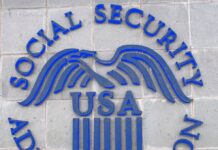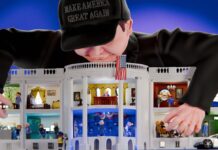NASA has announced that astronauts Barry Wilmore and Sunita Williams will return to Earth next February aboard SpaceX’s Dragon spacecraft.
The announcement at a press conference today caps off months of speculation about the best plan to safely bring the astronauts home after malfunctions with their ride, Boeing’s Starliner capsule, postponed their departure from the International Space Station in June. Now, NASA has decided that Starliner will return home in September without Wilmore and Williams, who will stay on with the existing station crew and will return on SpaceX’s Crew-9 mission next year.
“Boeing has worked very hard with NASA to get the necessary data to make this decision,” NASA administrator Bill Nelson said at the briefing. “We want to further understand the root causes and understand the design improvements so that the Boeing Starliner will serve as an important part of our assured crew access to the ISS.”
Wilmore and Williams launched from Cape Canaveral, Florida, on June 5, becoming the first astronauts to perform a crewed test flight of Starliner, a capsule developed by Boeing to ferry people to and from the ISS.
During the approach to the station, five of Starliner’s 28 thrusters failed to function. The crew was able to restore four of them and safely docked with the station, where they discovered Starliner’s propulsion system was also leaking helium from multiple places.
Boeing and NASA have been conducting ground tests of analog equipment to better understand the problem with the thrusters and helium leaks. Jim Free, NASA’s associate administrator, cited “uncertainty” with the “physics going on in the thrusters” as the core reason for postponing the return trip for Wilmore and Williams.
“This has not been an easy decision,” Free added. “But it is absolutely the right one.”
Wilmore and Williams were originally scheduled to stay onboard the ISS for about a week before returning to Earth in Starliner. But their return has been delayed for more than two months as mission planners struggled to isolate the cause of the thruster problems and assess the risks of using Starliner for the flight home. NASA’s plan will leave them on ISS for a total of eight months, longer than the typical six-month stay but not unprecedented.
Instead of sending a four-person crew to the ISS onboard SpaceX’s Dragon in September as planned, two of the seats on the capsule will be left open for Wilmore and Williams. New Dragon spacesuits for the astronauts, along with other necessary supplies, will be brought to the station in the coming months.
NASA has emphasized that Wilmore and Williams have not been “stranded,” nor are they in any danger. Likewise, the astronauts have publicly approached the extended stay as a lucky break that lets them rack up more time in space.
“We are having a great time here on ISS,” Williams told reporters in a July call from the ISS. “You know, Butch and I have been up here before, and it feels like coming back home. It feels good to float around. It feels good to be in space and work up here with the International Space Station team.”








